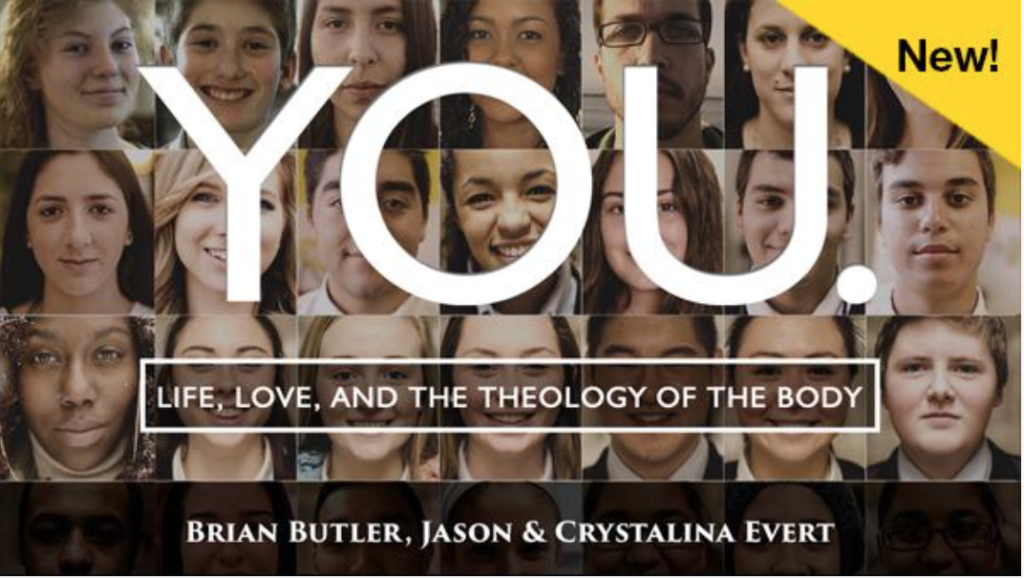I’ve been the campus minister at an all girls’ Catholic high school for more than a decade now. Let’s just say that I’ve been around long enough to see the Jonas Brothers come and go and come back again.
One of the things we have done consistently in our theology department over the years is “Free Question Friday” in which we give students an opportunity to ask anonymous questions about any Catholic topic that’s on their minds. It’s a really simple activity, hardly original or unique to our campus, but it has been really successful. We find that it is a good way to gauge what’s going on in the minds and hearts of students.
I doubt that they fully remember or synthesize all of the answers given in these sessions, but experience tells me that time spent on this is very useful, especially when there is a level of relationship and trust between teacher and students. Even when question writing is a silent and anonymous activity, there tends to be a cohesive theme among the questions.
Sometimes they are mainly faith and science questions, or questions about prayer, or more philosophical type questions. When there is a deeper level of comfort and openness in the room, though, the questions usually reflect that.
Free Question Fridays
Recently I had a chance to do a “Free Question Friday” with a group of sophomores. Since I was substitute teaching, and hadn’t spent a whole lot of time with this particular class, I was struck by how candid their questions were. You probably won’t be shocked, but most of them were about relationships and yes … boys.
Here are some examples:
- How do I know if a guy really cares about me?
- How do I respond if a boy tells me one thing and then goes and tells his friends another?
- How do I know if it’s time to break up?
- Why is it that boys don’t seem to really care?
- How do I tell my friend that I think her boyfriend is toxic?
- How far is too far?
- Do you think love is possible in high school?
There are also personal questions sometimes:
- How did you and your wife meet?
- Proposal story please!!!
- Did you wait until you were married?
Plain and simple—that’s what was on their minds. They seemed to be looking for some hope, insight, and practical wisdom. Clearly, they wanted to know more about how to have healthy relationships than they did about morality. My task was to carefully and credibly illustrate that the Church’s unpopular moral prescriptions are the essential ingredients in the recipe for a healthy relationship.
For a related study program, take a look at YOU: Life, Love and the Theology of the Body for teens.
Without oversharing about my own life or betraying the confidence of teens I’ve accompanied through the years, I talked about relatable common experiences and then moved into practical advice for going forward. I appealed to things that we have all seen and felt, but have rarely articulated or connected. In this case, I focused on the need for connection and fear of rejection that often drives teenage girls to perpetuate toxic relationships. In the process I managed to talk a whole lot about Church teaching without reading a list of rules and prohibitions. I’d like to think that it was time well spent.
Of course, I didn’t make this method up. This is precisely the method of St. John Paul II. Camping trips and young adult outings with a young Fr. Karol Wojtyla paved the way for St. John Paul II’s Theology of the Body in the first place. Fr. Karol Wojtyla listened to and answered the questions that young people had about relationships and connected the moral prohibitions of Catholic moral teaching to the quest for authentic love that is the search of every human heart.
Tips for Q and A Sessions with Teens
“Free Question Friday” is an important part of the much larger process of forming teens in a deeper vision of the human person, human love, sexuality, and an integrated vision of chastity. This doesn’t happen in one session or even in one course. It is a long-term pursuit that is hopefully rooted in family life and supported by Catholic parishes and schools. “Free Question Friday” is a part of that though. Here are seven tips for Q and A sessions with teens.
- Keep the tone conversational by including stories, examples, and even creative parables. Moralizing platitudes take the oxygen out of the room.
- To balance that, be sure your answers do end on a clear point or take away. This should be brief and to the point.
- Share your own experiences, but don’t overshare. Test stories in your toolkit with friends and colleagues to find the right balance of prudence and vulnerability.
- Without betraying confidentiality and trust, draw upon your own experiences in ministry to tie Church teaching into everyday life.
- Ask follow-up questions and make the session interactive via feedback and a show of hands to keep the whole audience engaged.
- When questions call for support and clarity from Scripture and tradition, model the right way to find answers by searching the Catechism on a shared screen or even on your phone. Walk teens through how you are accessing the Catechism or Scripture through your preferred platform.
- Keep it focused, but keep it light as well. A balance of humor and levity help with relationship and engagement.
We hope these tips and this article help you in your ministry. If you have any extra words of advice on sharing the faith with teens, let our audience know it in the comments section at the bottom of the page.
For more from Ascension on teen faith formation check out these programs for teens.
You May Also Like:
YOU: Life, Love, and the Theology of the Body [study program]
How to Manage Social Media for Teens [podcast]
Why God Gave Us Bodies
10 Tips to Communicate with Teens Effectively

Colin MacIver teaches theology and has served as the religion department chair and campus ministry coordinator at St. Scholastica Academy in Covington, Louisiana. He is the author of the guide to Quick Catholic Lessons with Fr. Mike. He and his wife, Aimee, are co-authors and presenters of Theology of the Body for Teens Middle School Edition. They are also co-authors of the Power and Grace Guidebook, and the Chosen Parent’s and Sponsor’s Guides.
Featured photo by rawpixel.com from Pexels







Are there any books similar to the Theology of the Body for Teens Middle School that is a book that teens can read as a stand alone?
I’m wondering how they could access the information if the kit was not purchased. American Girls series at one point published many non-fiction books about care of body, social relationships, academics, etc. I’m looking for something similar that is grounded in catholicism.
Hi Kellie. You can try Theology of His Body/Theology of Her Body by Jason Evert: https://ascensionpress.com/products/theology-of-his-body-slash-theology-of-her-body-2-books-1-volume